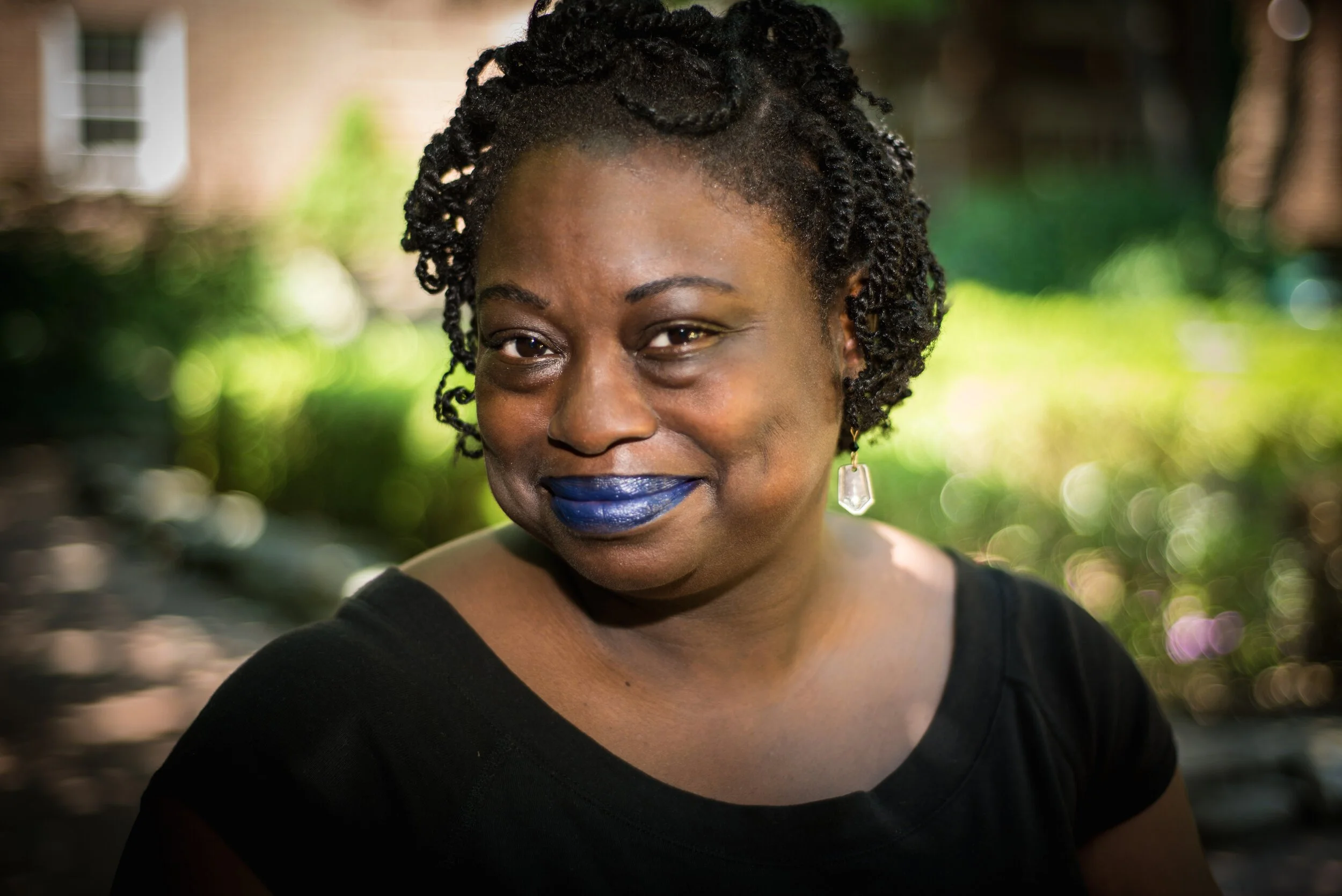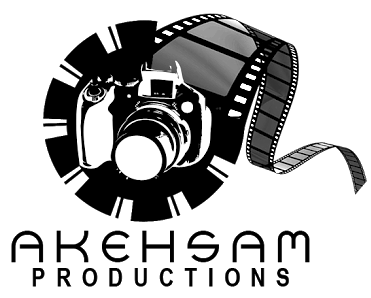Showcasing NYC’s history of LGBTQ+ Caribbean activists and artists.
The Queer Caribbeans of NYC exhibition was on view from September 7—October 13, 2019 at The Lesbian, Gay, Bisexual & Transgender Community Center, New York City
To commemorate the 50th anniversary of the Stonewall uprising, the Caribbean Equality Project presented “Queer Caribbeans of NYC | Stonewall 50," the first-ever multimedia historical retrospective showcase of the racial and cultural intersections of Caribbean LGBTQ rights activists. The exhibit contributes to New York City’s immigrant history by expanding on Caribbean immigrant and first-generation Caribbean-American experiences, through exploring Queer, Transgender, and Gender non-conforming advocacy. Queer Caribbeans of NYC | Stonewall 50 showcased the pioneering work of Caribbean activists, organizers, and artists who set the foundation for victories within the Caribbean LGBTQ+ diasporic community, and their contributions to the broader LGBTQ+ liberation movements of New York City, including Caribbean Pride, Sistas of Caribbean Ancestry (SOCA), Curry Club NYC, Chutney Pride, Urban N' Out, the Gay Caribbean USA Pageant, and Caribbean Equality Project.
The exhibition documented 30 years of racial and cultural intersection of Caribbean LGBTQ rights activists with an extensive repository of never-before-seen photographs, news footage, posters, oral histories, and videos featuring interviews with well-respected Caribbean LGBTQ rights advocates. This includes the Tobagonian star of “Pose”, Dominique Jackson; Trinidad-born activist Colin Robinson, co-founder of “Big Truck,” Carnival Movement—which is a tradition of Caribbean LGBTQ visibility and representation at the NYC Pride Marches—created in the late 90’s; Bajan trans activist and co-founder of CK Life, Kim Watson; founder of Chutney Pride, Tina Arniotis, and the founder and Executive Director of Caribbean Equality Project, Mohamed Q. Amin.
A multimedia timeline from the early 1990’s—to the present—anchors the exhibit, taking viewers through the struggles against fear and invisibility spurred by colonialism, the migrant “coming out” experience, and to the contemporary legal victories in Belize, Trinidad & Tobago and Guyana (where four trans women won a lawsuit contesting Guyana’s “cross-dressing” laws). The timeline concludes with a look into the future of LGBTQ+ rights in the Caribbean diaspora, through the lens of Trinidadian photographer and filmmaker Masheka Joseph’s original portraits of over twenty notable LGBTQ activists, artists and academics of Caribbean heritage and/or descent.
Opening Reception of Queer Caribbeans of NYCQueer Caribbeans of NYC featured participantsThe primary goals of the Queer Caribbeans of NYC exhibition:
Contribute to New York City immigrant history by expanding on Caribbean immigrant and first-generation experiences as told through the eyes of LGBTQ artists, performers, activists, academics, leaders, elders, and other community members of the diaspora.
Create a physical and virtual archive that is free and publicly available as an academic, journalistic, historical, and cultural resource.
Serve as a public education program on Caribbean LGBTQ history by lending our archives to educational institutions and museums.
Continuous expansion of the archive to include more LGBTQ people across the Caribbean diaspora, with a focus to add more voices to Queer & TGNC community.
Advocates across the Caribbean diaspora continue to galvanize the LGBTQ+ community against those who tell them that their existence contradicts the laws and cultural values of their home countries. But in 2018 and 2019, an unprecedented shift in policies affecting LGBTQ+ people of Caribbean & Central American heritage arrived: Colonial-era anti-LGBTQ+ laws criminalizing same-sex intimacy and transgender visibility were successfully challenged in Belize, Trinidad & Tobago, and Guyana, where four transwomen won a lawsuit contesting Guyana’s “cross-dressing” laws. And despite the existence of similar anti-LGBTQ+ laws in Jamaica & Barbados, LGBTQ+ communities held the first-ever Pride celebrations in their respective nations.
With Dominicans, Jamaicans, Guyanese, Haitians, and Trinidadians comprising five of the ten largest immigrant groups in New York City, people of Caribbean heritage—who make up almost thirty percent of the city’s 3.3 million immigrant population—have made prominent contributions to New York City’s food, music, business, political and cultural scenes since the first Jamaican immigrants arrived in the late 1800s. Less prominent were the Afro and Indo-Caribbean LGBTQ+ migrants whose identities and stories remained hidden from their conservative migrant communities. The founding of Caribbean Pride by Trinidad-born activist Colin Robinson in the late ’90s and Curry Club NYC and Sholay Productions—two of the first known Caribbean and South Asian LGBTQ social spaces—in the early 2000s provided that small taste of their island and native homelands, while allowing opportunities for queer & TGNC immigrants and first-generation Caribbean-Americans to dance, network, celebrate cultural diversity and organize around social justice issues; Giving rise to a generation of activists whose quiet, but significant contributions to the LGBTQ rights movement brought us Caribbean-oriented Pride events, rainbow flags staking their claim at widely celebrated religious and cultural holidays and groundbreaking legislation spanning over 20 years.
The Queer Caribbeans of NYC exhibit was curated by Mohamed Q. Amin and Assistant Kadeem Robinson of the Caribbean Equality Project, this exhibition is made possible through the generous support of The Lesbian, Gay, Bisexual & Transgender Community Center of New York City, the LaGuardia and Wagner Archives at LaGuardia Community College/CUNY, the New York City Council, through the office of Daniel Dromm, the Queens Memory at Queens Public Library, and NAWS Central Queens.
Colin Robinson
On Saturday, October 5, 2019 the Caribbean Equality Project held an afternoon of poetry, art and conversation with Trinidadian You Have You Father Hard Head, author, and Caribbean Pride & CAISO co-founder Colin Robinson, with critic & poet, Rosamond S. King about their 40+ years of imaginative and pioneering activism, organizing, and writing.
Director of Imagination for CAISO: Sex & Gender Justice. His thought-leadership on sexuality, gender, power and justice in the Caribbean is globally recognized. He is the author of the 2012 Commonwealth Opinion “Decolonising Sexual Citizenship”; and his work is the subject of Andil Gosine’s 2015 Sexualities article “CAISO, CAISO: negotiating sex rights and nationalism in Trinidad and Tobago.”
Robinson’s contributions to analysis, culture, advocacy and organizations span four decades. He is Trinidad & Tobago’s leading national LGBTI advocacy voice, and has led the work of CAISO since its 2009 formation as the Coalition Advocating for Inclusion of Sexual Orientation. In 2011, he spearheaded the revitalization of the Caribbean Forum for Liberation & Acceptance of Genders and Sexualities, a 21-year-old regional LGBTI coalition, and has developed its academy to develop emerging Caribbean activists as transformational leaders. In 2018, he was appointed by the InterAmerican Development Bank T&T country office to its NextGen board of changemakers, where he is spearheading a project to develop a shared facility to meet the management needs of smaller civil society organizations.
Robinson’s career also encompasses years of health justice advocacy, including HIV policy and training work with the Offices of the Prime Minister and the Chief Personnel Officer, the Ministry of Labour, the University of the West Indies Faculty of Medical Sciences; service on the board of the PanCaribbean Partnership against HIV and AIDS and the New York City Board of Education AIDS Advisory Council; and nine years in public policy and management roles at the largest HIV response organization in the United States, Gay Men’s Health Crisis. In 2017, the Office of the Prime Minister had him physically ejected from the re-launch of the National AIDS Coordinating Committee for engaging other invited guests about its lack of representation.
He led pioneering organizing work in LGBTI communities of colour in the US, including service on government planning and advisory bodies while an undocumented immigrant for over a decade. Robinson co-founded the Audre Lorde Project, an organizing centre; and co-chaired the board of directors of the international human rights advocacy group Out|Right International. He produced the 1988 issue of Other Countries: Black Gay Voices, a literary journal that won the US Council of Literary Magazines & Presses seed award; and conceived Think Again, a 2003 AIDS Project Los Angeles & New York State Black Gay Network collection of essays rethinking HIV prevention. In 1998 and subsequent years, leading Caribbean Pride, he helped put a soca bigtruck in the Manhattan LGBTI Pride parade, and organized a historic 1999 reading of diasporic Caribbean LGBTI writers. In 2000, he was selected Grand Marshal for the Brooklyn Pride Parade.
Robinson’s poetry appears in the 2016 collection You Have You Father Hard Head, in “Lessons,” a 1996 work by Ronald K Brown’s Evidence dance company, and in film collaborations with Sekou Charles (Riding Boundaries, 2011) and Marlon Riggs (Anthem, 1990). He co-edited the 2015 “Firing the Canon” special issue of Moko: Caribbean Arts & Letters, and his reflections on global advocacy against dancehall “murder music” appear in the 2009 Caribbean Review of Gender Studies. He served as a field producer for Riggs’s landmark 1989 documentary Tongues Untied; and created the first three of the Studio Museum in Harlem’s “A Day Without Art” responses to World AIDS Day (1989-91) and several 1980s and ’90s programmes that took the Other Countries writers’ work into gay bars and nightclubs, élite academic institutions and an emerging performance circuit. Since 2014 he has written a newspaper column, which currently appears in Sunday Newsday, about bodies and nationhood. Robinson has degrees in anthropology and management from New York University and the New School Milano School.
Rosamond S. King
A creative and critical writer and performer. Her poetry publications include the Lambda Award-winning collection Rock | Salt | Stone and poems in more than three dozen journals, blogs, and anthologies, such as The Feminist Wire, Drunken Boat, Harriet, The Caribbean Writer and the award-winning Kindergarde: Experimental Writing for Children. Scholarly publications include Island Bodies: Transgressive Sexualities in the Caribbean Imagination, and essays in Callaloo, LitHub, Ms. Magazine, and The Radical Teacher. King is creative editor of sx salon and associate professor at Brooklyn College, part of the City University of New York.
















